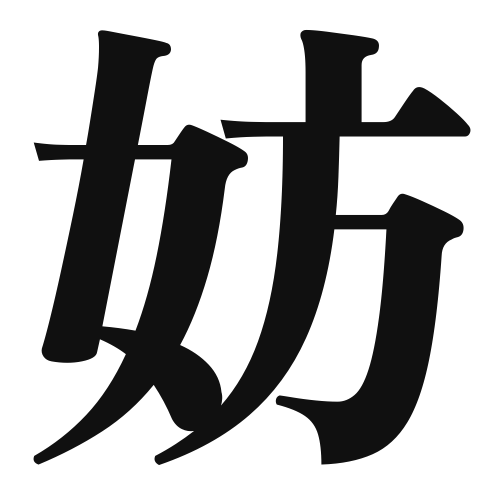1. Overview of Meaning
The kanji “妨” (bō) means “to hinder” or “to obstruct.” It conveys the idea of preventing someone or something from progressing or achieving a goal.
2. Formation and Radical
Formation of the Kanji: The kanji “妨” is a compound character (会意文字) that combines elements to convey its meaning. It consists of the radical for “woman” (女) and the character “防” (bō), which means “to defend” or “to protect.” This combination suggests the idea of a woman obstructing or hindering.
Radical: The radical of “妨” is 女 (woman), which often relates to female figures or roles in kanji.
3. Examples of Usage
Common Words and Phrases: Some frequently used words that include “妨” are:
- 妨害 (bōgai) – interference, obstruction
- 妨げる (sabotageru) – to hinder, to obstruct
Example Sentences in Daily Conversation:
- 彼の計画を妨げることはできません。
(I cannot hinder his plans.) - 妨害があったため、会議は遅れました。
(The meeting was delayed due to interference.)
4. Synonyms and Antonyms
Similar Kanji: A similar kanji is “阻” (so), which also means “to obstruct” but often carries a stronger connotation of blocking or stopping something completely.
Antonyms: An antonym of “妨” is “助” (jo), which means “to help” or “to assist,” indicating support rather than obstruction.
5. Cultural and Historical Background
Relation to Japanese Culture: The concept of hindrance is significant in Japanese culture, where harmony and cooperation are valued. The idea of “妨” can be seen in various contexts, such as in teamwork or community efforts.
Proverbs and Idioms: One relevant proverb is “妨げる者は助ける者にあらず” (Those who hinder are not helpers), emphasizing the importance of support over obstruction in relationships and society.
